Climate change is here, and it’s causing a wide range of impacts. As global citizens, we should not ignore the crisis we are in. Yet sometimes if not all, we might feel the issue is too big for us or too far away. From this month onwards, we are inviting people in our local community, from all walks of life, to share with us how they connect to and make the effort to deal with Climate change. This time, we have invited Renee Ong, a young climate enthusiast from Hong Kong, to share with you her actions addressing climate emergencies to make changes.
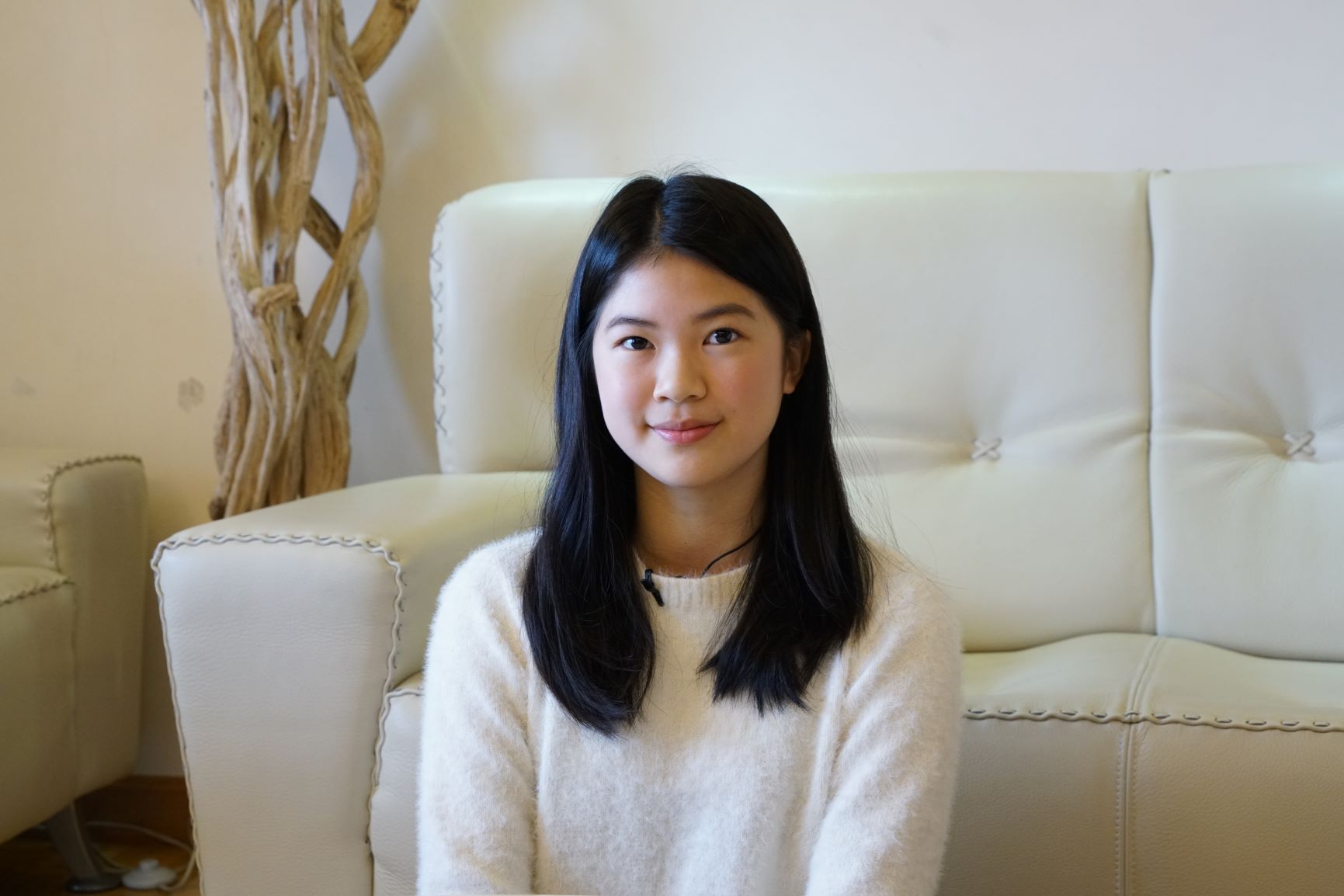
“I’m Renee, a Form Five student in Hong Kong. Last summer, I switched to a plant-based diet to help slow down climate change.”
Climate change is getting too big to solve? Start from our daily life!
Renee was aware of the climate change issues for some time yet she didn’t pay much attention to it, until last summer, her sister traveled back from the UK. She told the family about the recycling system in the UK and encouraged the family to help the environment. Inspired by her sister, Renee and her family started to search for recycling spots in Hong Kong and always clean the plastic or glass bottles before recycling. The seed of protecting the environment has sprouted in her, “I hope to start cutting down carbon footprint, reducing waste in landfills.”
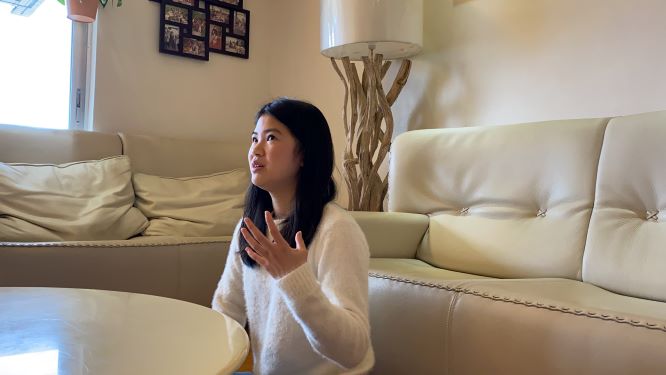
Bushfires in Australia – we can do to help
Renee pointed out that Australian wildfires are a sobering example of climate change at work, making people reflect on the consequences of climate change. The natural fire season has resulted in many expanding and uncontrollable bushfires due to unprecedented dry weather and heat waves. She lamented that many people lost their homes and animals lost their habitats.
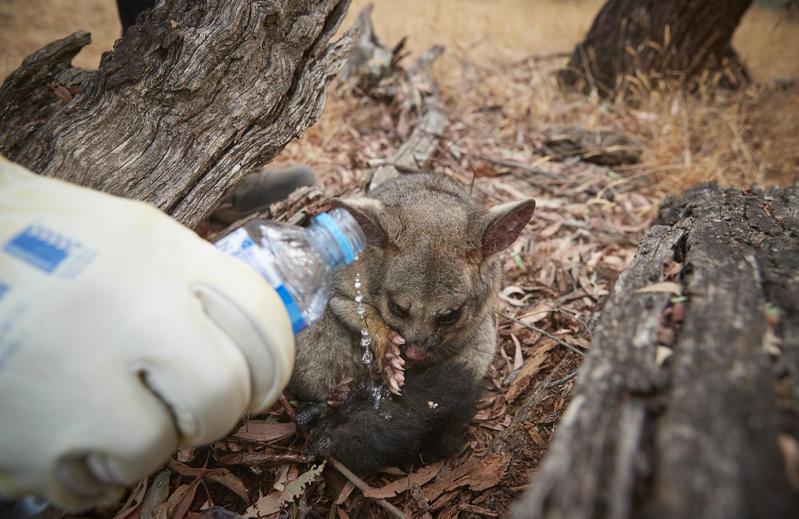
Renee is concerned that this incident may happen elsewhere in the world, “if we continuously maintain a wasteful lifestyle and do not act consciously, these disasters will happen to us one day.”
Renee felt that Hong Kong was a safe place in her childhood without many natural disasters. Yet she realized that climate change is happening to Hong Kong too. “Global temperature is rising. If humans continue the same way of living, global warming is going to worsen. We should act now!”
Let’s act together to make changes!
Renee stressed that extreme weather events are affecting us more, like the Australian bushfires and Typhoon Mangkhut and we have to act now. “It’s disheartening to see the koalas burned down to bones. Some friends would comment ‘disastrous’ on social media, yet not take action. Being students, my friends and I probably won’t be able to donate money, yet we can make changes in our daily life.”
“We can order less takeouts, use stainless straws, reduce waste and lower meat consumption. By starting the change with ourselves and sharing the ideas, we will influence the people around us and more and more will become aware of the positive impact and act accordingly.”
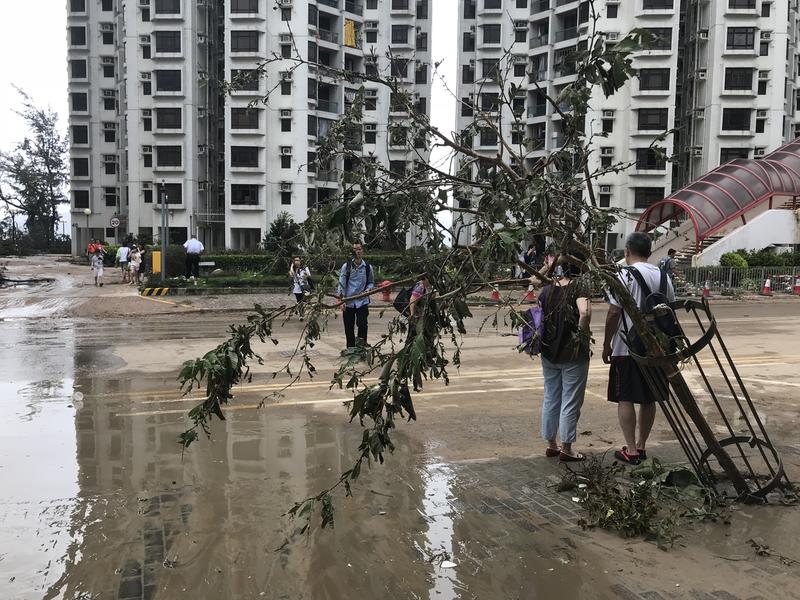
Eat less meat, or try becoming a vegetarian!
After being aware of the impacts of climate change, Renee decided to go vegetarian in the summer of 2019 to help tackle climate emergency.
What is the relationship between meat eating and climate change? There is a worldwide demand in meat products. Industrialized livestock operations contribute to deforestation, water contamination and ecological imbalance.
Livestock waste, especially from cattle, releases a large amount of methane and other greenhouse gases, aggravating climate change. Carbon dioxide produced by the meat industry alone accounts for 14.5% of the world’s carbon dioxide, more than the total amount emitted from cars, boats, trains and airplanes. By reducing meat consumption, we help lower carbon emission.
Renee often shares the advantages of being a vegetarian with her friends and family. She even shows them videos of animals being tortured to raise their awareness of animal rights. Her mom and some of her friends, under her influence, have decided to switch to vegetarian diets.
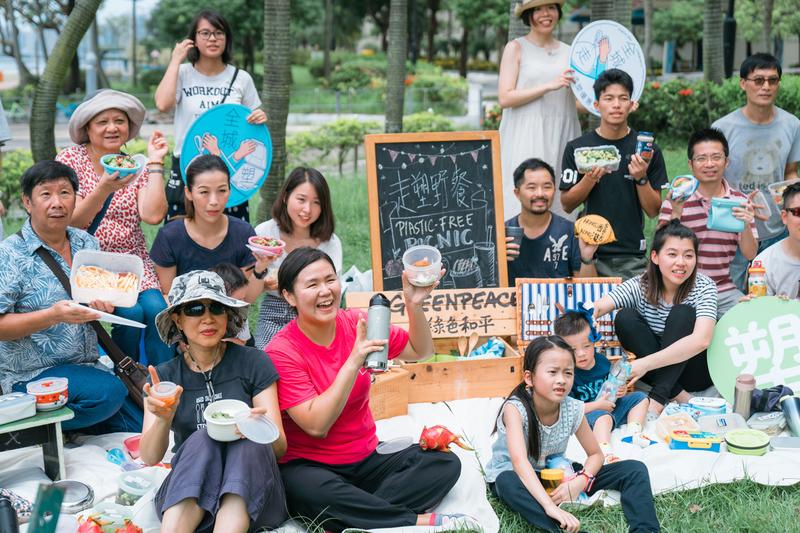
International leaders should take actions in tackling climate change!
“I’m furious at seeing international leaders not participating in fighting climate change. Inspired by Greta Thunberg, I decided to be the change, including switching to a plant-based diet, participating in climate strikes, striving to draw people’s attention to the climate crisis and impacts of climate change.”
Renee was disappointed that international leaders have no concrete plans to combat climate change.
“We have voiced our concerns and requests. International leaders have the power to influence, they are expected to act and save the Earth. A policy on reducing carbon emission should be set as a goal for everyone to follow, take actions and make bigger changes.
As a high school student, my influence may be limited. Contrary to the international leaders’ inaction, I decided to start the change with myself and influence people around to alleviate the climate crisis.
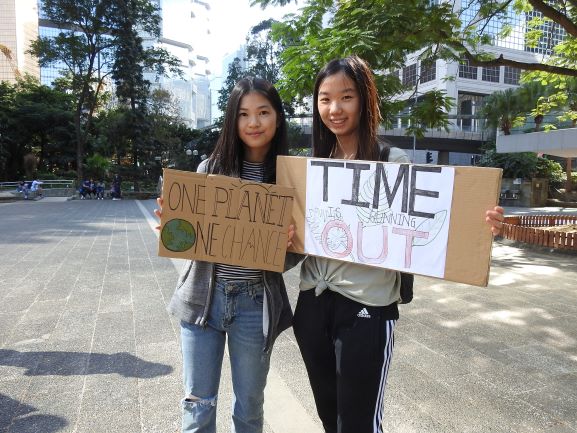
About “Let’s Talk about Climate Change” series
Climate change is not only here, but it has also evolved to “Climate Emergency”. As global citizens, we should not ignore the crisis we are in. Yet sometimes if not all, we might feel the issue is too big for us or too far away. We are inviting people in our local community, from all walks of life, to share with us how they connect to and make the effort to deal with climate change. Read More
